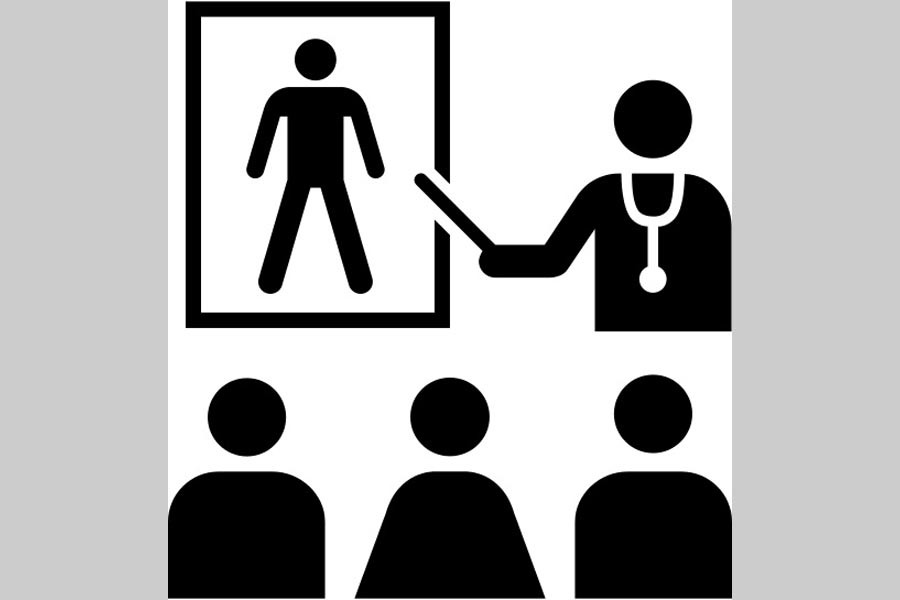Basic health education for all still leaves much to be desired in Bangladesh. Mass literacy and basic education will no doubt go a long way to contribute to a richer life of people. But before we provide them with basic knowledge and skills relating to healthful living, we should not wait till all the unlettered people are made literate.
Human development, in fact, involves a continuous and sustained process of learning throughout people's life and also of applying what is learnt to improve quality of their life. This applies not only in the case of individual health of people but also to all aspects of human life including health. Learning is linked with society's uplift through development of individual life. The precondition for social prosperity and progress is that all children, youth and adults in a society must be given the opportunity to achieve an acceptable level of learning. Such learning needs to be flexible and broad in scope and scale.
There has been a phenomenal extension of primary schooling and education in the country in the last few decades. But, truly, that is not enough. There must be supplementary alternative programmes to help meet the basic learning needs of both children with limited or no access to schools. This is also true in the case of youths and adults who did not have any opportunity to receive any institutional education.
As a result, the most realistic attack on the problem will be to start large scale basic literacy and education programmes for the illiterate population irrespective of the age groups they belong to. Such programmes should include suitable elements of health education for all -- the issues and elements relating to sanitation, immunisation, nutrition and pollution. Appropriate programmes depending largely on audio and visual appeal need to be developed for the country's illiterate population.
There are lots of other issues that may be included in mass health education. These are antenatal care, childcare, and safety measures, accident prevention in children and old people. Prevention of communicable and lifestyle diseases, venereal diseases, family planning, cancer and AIDS should also be made part of the programmes.
Moreover, dangers of smoking and drug abuse, dental care and environmental health need also to be addressed. It will be wiser to keep in mind that a bigger chunk of our population, both urban and rural, is still deprived of the medical healthcare facilities. Most of the adult illiterates still live below the poverty line and in unsanitary conditions. Often go hand in hand with illiteracy are problems such as malnutrition, ill health and human sufferings of diverse varieties.
Therefore, it will be unwise to ignore economic and human cost of the deplorable situation and environment the people live in. It is to be remembered that if the health of the major illiterate segment of the country's rural and urban people are ignored the 'Health for All' scheme will be frustrated.
Dr Sarwar Md. Saifullah Khaled is a retired Professor of Economics and Vice Principal at Cumilla Women's Government College, Cumilla.


